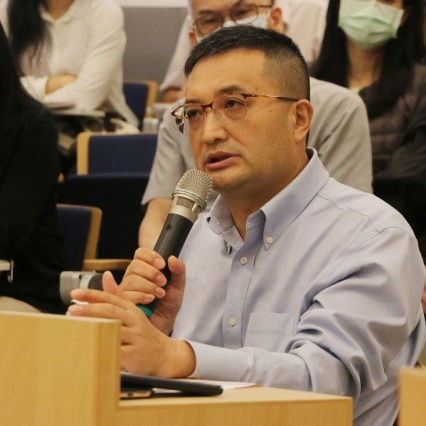The State Formation of Modern China – Intro
The forms of countries and international relations in the contemporary world are basically modeled on those in western Europe. But we can’t conclude that the formation of such form is the result of historical trend or the necessity of history. The formation of international relations in modern western European has a long history.
That is to say, small-scale and medium-scale regional societies and regional religious, linguistic and cultural context closely integrated into such a political situation. Although monotheism itself is non-territorial, the inevitable politicized nature of religion combined with regional factors appear as a sectarian rivalry. Such opposition, in interaction with regional secular politics, further fixes the territorial secular politics of Western Europe as a whole, because its scale needs to be based on the sphere of influence of military power. Then, the establishment of the militarism with a large-scale tax revenue is characterized by class stratification and segregation.
Therefore, classes have become a long-term discourse throughout Western European society and history. Karl Marx’s so-called “feudalism” in Western Europe is a description of immobilization and closure of small-scale regional politics, and the immobilization and closure of class stratification in Western Europe. This is the key to understand the history of Western Europe. Compared to Western Europe, the politics of East Asia, including China, shows a geographical openness and class mobility, based on its large size.
These two factors add up to a relatively open system in politics. The core of feudal politics in Western Europe was bloodline, or lineage. From the monarchs and nobles to the common people, their status was determined and mandatory succeeded by bloodline.
In China, as early as the 3rd century B.C., when the county system replaced the feudal system, the influence of the lineage declined rapidly. The bureaucracy and county system of the Qin dynasty was designed to replace the hereditary system.
The decline of lineage politics in China preceded that of Europe by almost 2000 years. Although China still retains monarchy at the top level of bloodline politics, there have been dozens of regime changes throughout the history of China, which had disrupted the feudal order.
Also, the changes of dynasties emphasize “Mandate of Heaven” and ” Succession of Confucian ideals ” rather than lineage. Therefore, the emphasis is on political legitimacy, not the purity of blood. In comparison, Japan’s imperial family has “reigned since time immemorial”, while the lineage of European monarchies can also be traced back to the Middle Ages.
In China, after the Sui Dynasty, the imperial examination system was introduced, which was the predecessor of the modern civil service system. It has not only expanded class mobility, but also ensured stability and continuity of politics and administration.
In conclusion, I’ll stress this one more time, in contrast with our stereotypes, traditional Chinese politics is an open system, while traditional Western European politics is composed of separate closed systems instead.
1. GT staff reporters. “China Keeps Development as Top Priority in 2023.” Global Times, September 9, 2023. https://www.globaltimes.cn/page/202303/1286998.shtml.
2. Xinhua. “Xi’s Article on Economic Work Published.” Global Times, February 16, 2023. https://www.chinadaily.com.cn/a/202302/16/WS63eddfc9a31057c47ebaf32f.html.
3. Fok, James A. “The Roots of the China-US Financial Cold War.” Asia Global Online, December 9, 2021. https://www.asiaglobalonline.hku.hk/roots-china-us-financial-cold-war.
4. “China Net Household Saving Rate,” n.d. https://tradingeconomics.com/china/personal-savings.
5. Pettis, Michael. “Will China’s Common Prosperity Upgrade Dual Circulation?” Carnegie Endowment for International Peace, n.d. https://carnegieendowment.org/chinafinancialmarkets/85571.
6. Tang, Frank. “China’s ‘Common Prosperity’ Push Could Boost Key Middle-Class, but Action Urged to ‘Bring Back’ Confidence.” SCMP, October 21, 2022. https://www.scmp.com/economy/china-economy/article/3196646/chinas-common-prosperity-push-could-boost-key-middle-class-action-urged-bring-back-confidence.
7. CGTN. “China Advances Rural Revitalization across the Board for Common Prosperity.” February 28, 2023. https://news.cgtn.com/news/2023-02-28/China-advances-rural-revitalization-for-common-prosperity-1hMzehEfFio/index.html.
8. Hua, Judy, and Kevin Yao. “China’s February Credit Grows Faster than Expected, Supporting Recovery.” Reuters, March 10, 2023. https://www.reuters.com/world/china/chinas-february-credit-grows-faster-than-expected-supporting-recovery-2023-03-10/.
9. “Cash Reserve Ratio in China Increased to 11 Percent in March from 10.75 Percent in March of 2023.” Trading Economics, n.d. https://tradingeconomics.com/china/cash-reserve-ratio.
10. Turak, Natasha. “Silicon Valley’s ‘Greed and Avarice’ Have ‘Finally Come Home to Roost’ in SVB Collapse, Trader Says.” CNBC, March 13, 2023. https://www.cnbc.com/2023/03/13/svb-collapse-silicon-valleys-greed-and-avarice-to-blame-trader-says.html.
11. CGTN. “Chinese Premier Promises Broader Space for Private Sector Growth,” March 13, 2023. https://news.cgtn.com/news/2023-03-13/Chinese-premier-promises-broader-space-for-private-sector-growth-1i8rBAHaF7a/index.html.





